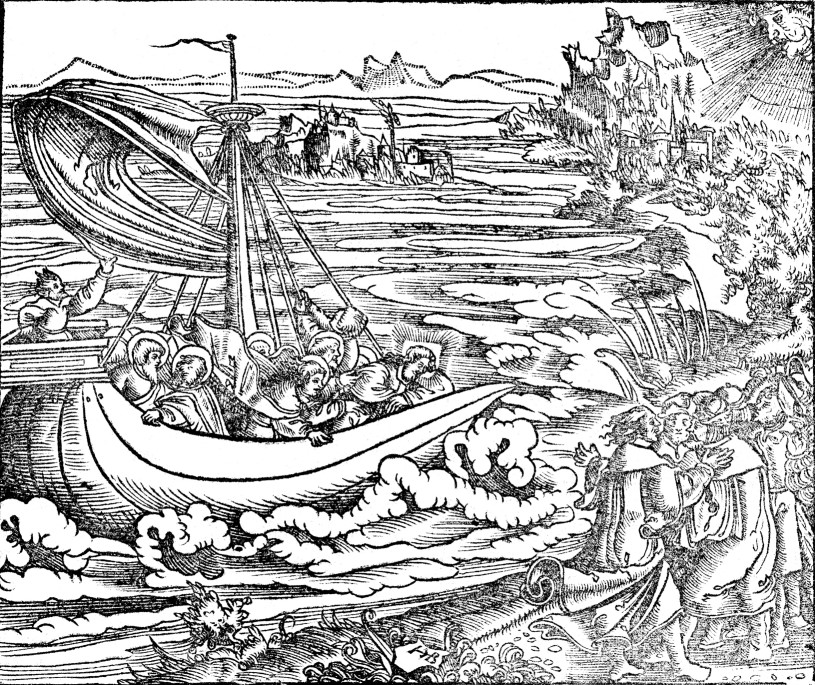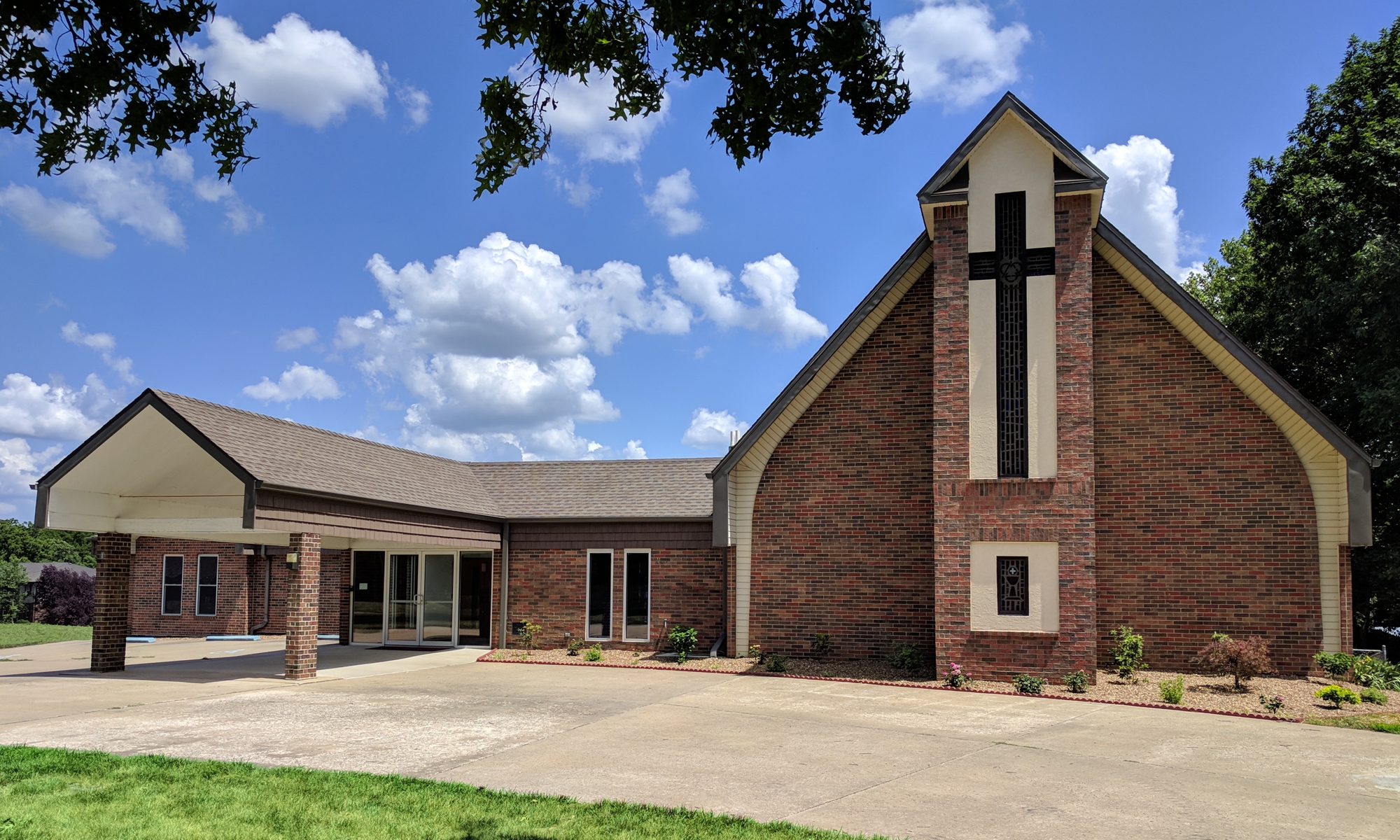
Lessons: Jonah 1:1-17, Romans 13:8-10, Matthew 8:23-27
Hymns: LSB 398, 557, 724, 399, 409
Grace, mercy, and peace to you from God our Father and our Lord and Savior, Jesus Christ. Amen.
Wherever Jesus goes, trouble follows Him. Born in Bethlehem and King Herod’s army comes after Him. Baptized at the Jordan and Satan comes to tempt Him. Going on a boat to nap, a storm arises.
Last week we heard the first part of this chapter (Matthew 8) in which Jesus heals a leper and the centurion’s servant. The leper told so many people about Jesus (against our Lord’s instruction) that Jesus could no longer openly enter the city. So, he had to go out into the wilderness and the people had to find Him there. Jesus also said in this chapter, “Foxes have holes, and birds of the air have nests, but the Son of Man has nowhere to lay his head” (8:20). After Jesus calmed the storm, this same chapter concludes with Jesus driving out some demons. When the whole city heard about it, they went out to find Jesus and begged Him to go somewhere else. So, He got into a boat and went across the Sea of Galilee.
Such it is with the Word of God. The world is unhappy with Him and has no room for our Lord. It should be no surprise when churches struggle. The devil, the world, and our sinful nature are all at work to minimize Christianity’s impact in our lives and communities.
It boils down to this: when God’s people do not desire God’s teachings and His gifts, there will be much trouble and vice.
When you consider Christianity in our country this day, you will see the rates of those who consider themselves Christian to be plummeting. It is no longer fashionable to be Christian. And those who are truly faithful to Christ are considered to belong to fringe groups.
It’s painful to watch. But, it is NOT inevitable. There are lots of people around here who should be in our churches. Our membership rolls demonstrate that fact. On an average Sunday, 80% of our church membership is not here. This demonstrates a genuine problem. And the fault is not God’s. It’s probably not the church’s either. It lies in those who stay home. They have to answer to God for their refusal to make use of the means of grace.
Years ago, I was talking to someone who was concerned about her relative who was no longer a member of any church. She seemed to think that he somehow remained a Christian and she said, “I hope God will understand.”
Is God understanding? Of course! He understands. He saw us dead in our sins and trespasses. He sent a Savior—Jesus—who became our substitute! He died in our place! He earned our forgiveness!
And He didn’t even stop there. He wants to ensure we are actually saved. So He preserves the Word in our midst. He establishes churches for the preaching of the Word and administration of the sacraments! He has baptized us into Himself. He gives us His very body and blood to eat and to drink! He absolves us of our sin! Through these means He reconciles us to Himself!
So God clearly understands! He’s given us everything so that we can be saved. How much more do we expect Him to understand? Should God be understanding when He has made it so easy for us to be saved (after all, He has done it all for us) and yet people have no time for all these things? Should He understand when people won’t hear Him or receive His gifts? He has awakened us from spiritual death to life. And many would rather go back to sleep!
Anyway, perhaps I digress. But I have two points in saying all of this as we consider today’s Gospel: 1) There’s lots of unfounded and ungodly fear and 2) Godly fear is part of the Christian life.
First the unfounded and ungodly fear. We can see an example of this in today’s Gospel. Before the storm came up, you could have asked the disciples if they believed, and they would have responded with a resounding “Yes!” But they were not conscious of how their hearts trusted in the calm sea and the fair weather. Their faith was founded on what their natural eyes saw. But when a storm came up and Jesus was busy sleeping, their faith vanished. When the calm weather disappeared, so did their faith.
How often do we see this today? Sometimes people assert faith in Christ and then hit the storms of rough times. Rather than turning to Jesus in trust, they may lash out at God or blame Him for everything that has gone wrong. Even worse, they may turn away from the very Lord who grants life and can remedy the situation. All too often, their faith was not founded in Him. It was founded in good times and the good feelings of peace.
Because the disciples were now filled with fear, they woke Jesus up and said, “Lord, we are perishing!” But Jesus shows their fear was unfounded when He said, “Why are you afraid, O you of little faith?”
He exposed their and unbelief. He got to the root of the matter. There is no need to fear. Drawn from Psalm 107, our Introit this morning states, “He made the storm be still, and the waves of the sea were hushed.” When God is with us, what can be against us?
Those who are pained by watching America’s churches decline sometimes suffer with ungodly fear. Instead of trusting in the power and mercy of God, they fear their church will close. They fear the future of their community. They fear the unknowns that lie ahead.
There are many other things that bring about fear. As long as I have been alive, I have been hearing people assert that we’re in rough times, the future is uncertain, and things are worse than they used to be. When times are bad, people complain. When times are good, too many are silent or find some other reason to complain.
Many are filled with fear over the rise of other countries and false religions, the rise of immorality in our country, the national debt, unstable markets, COVID-19, and a whole host of other things.
But do you remember what we prayed in our Introit? We prayed, “They cried to the Lord in their trouble, and he delivered them from their distress.” Jesus Himself teaches us not to worry. We commend all things to Him. So instead of wasting our time in fear or worry, we ought to spend our time in prayer—making our requests be known to God. Not only that, but we should also be using our time to make our prayers and requests come true. If we want people to be attending church, we need to be encouraging them to come. If we want our church’s budget to be met, we need to be generous givers ourselves. If we want something that’s godly, we need to do our level best to help bring those things to fruition.
Here’s something that most Christians don’t realize: the Christian life does involve growth—growth in the Word—growth in knowledge—growth in good words. It’s difficult to remain Christian when there’s no growth in our Christian life following Confirmation.
This moves me to my second point. There is a godly fear. In our Epistle, we heard a summary of the Ten Commandments. And the explanation of the first commandment is “We should fear, love and trust in God above all things.” The rest of the commandments then bring us back to the first when they each say, “We should fear and love God so that…” Love is the fulfillment of the Law. But there’s also godly fear.
When we fear God, we do not want to do things against Him. After all, we have all learned in the Conclusion of the Ten Commandments, “God threatens to punish all who break these commandments. Therefore we should fear His wrath and not do anything against them.”
This means we are taught there is a godly fear. This fear involves respect, but it goes deeper. Think about it this way: Who should you fear? God? Or others? If you fear others, you will happily sin until you get caught. If you fear God, you will not sin with a good conscience.
When you fear others, you will treasure the opinions of man and accept them as truth. But when you fear God, you will trust in His Word and promises, and treasure them above the opinions of man.
When you fear others, you will be ashamed to speak the Word of Truth that you’ve been taught. But when you fear God, you will boldly speak God’s truth to those around you.
When you fear others, you will not say what is right or wrong, but when you fear God, you will say what needs to said.
If we desire to be found godly in Christ—if we desire to be Christian—our desire is to grow in our Christian knowledge and trust, and gladly do as He commands.
And, as a result, we can commend to Him the things which concern us that are beyond our control. Yes, the storm was beyond the disciples’ control. And Jesus was there who offered a quick remedy through His most amazing miracle of calming the storm.
However, He doesn’t always quickly fix the wrongs in our lives, the ailments we endure, or the temptations we face. Yet, He still cares for us deeply. Therefore, He will always take care of us. He has already come as our Savior and has taught us His words of promise. He has reconciled us to God through His all-sufficient sacrifice on the cross.
If He can rebuke the winds and the sea and cause them to calm down, He can certainly keep us in His care. He can grant us eternal life and salvation. He can be our refuge and strength in this troubled world. We need not live our lives in fear and worry. Instead, we fear and love God, for He first loved us and He forgives us. He grants us a sanctuary and promises to bring us with Him to everlasting salvation. Amen.
The peace of God which passes all understanding keep your hearts and minds in Christ Jesus to life everlasting. Amen

